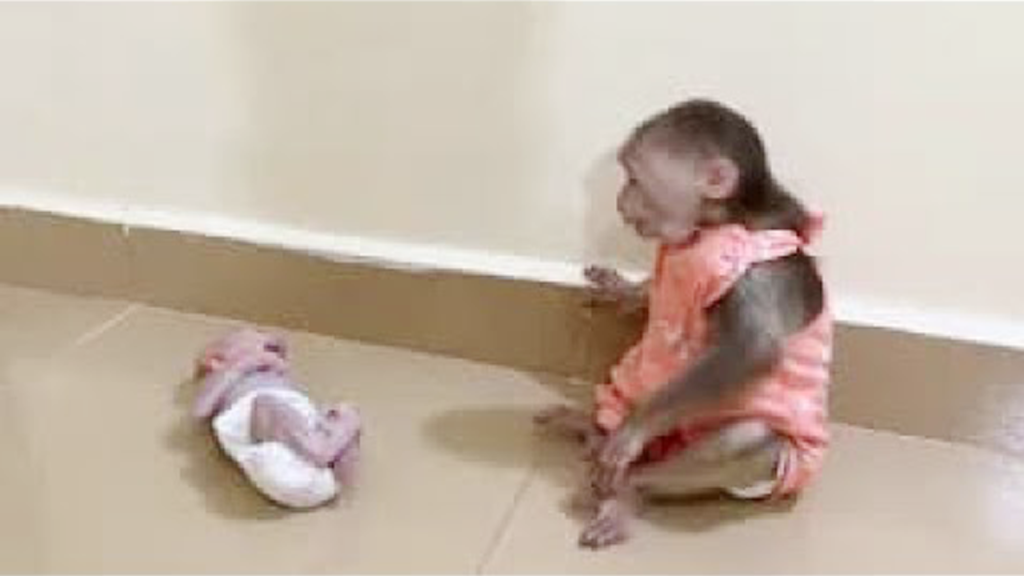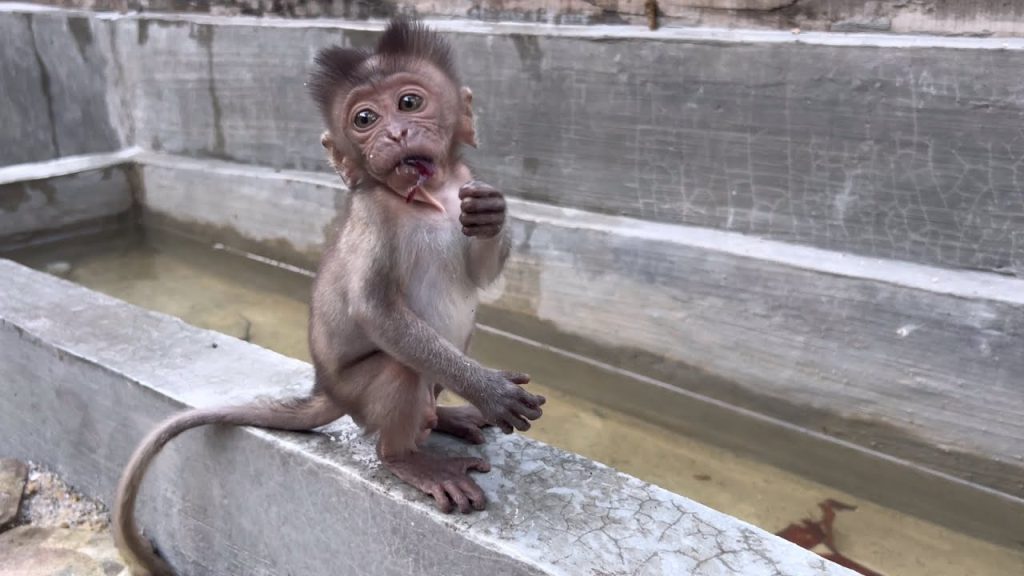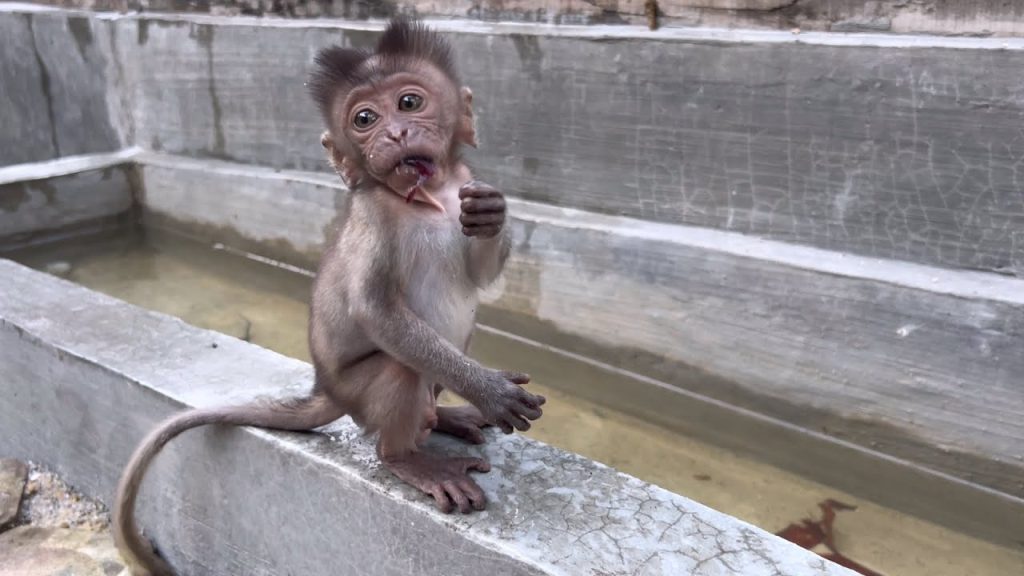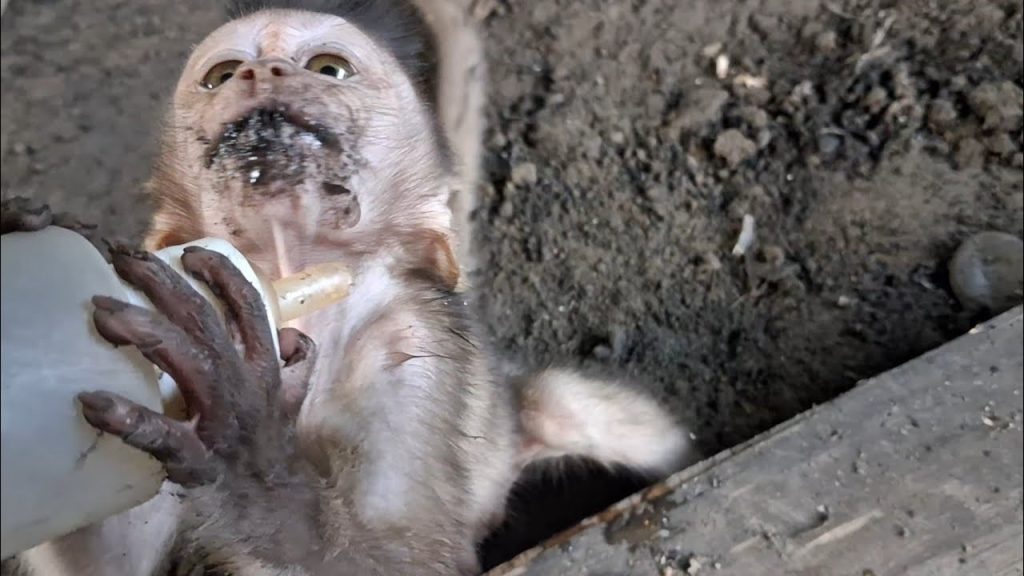
When Chichi cries backward on the floor — her spine arched, her face turned up, her small fists trembling in air — because Pavpav does not allow her to hug him, we are watching more than just a tantrum. We are observing a tiny primate discovering that affection can sometimes be denied — and her body does not yet have a coping system large enough to manage that emotional reality.
For a baby monkey, physical touch is not simply comfort — it is the core architecture of identity. Holding, clinging, hugging, nestling — these are the first languages. Before words, before rules, before hierarchy, there is contact. So when Chichi wants to hug Pavpav, she is not trying to dominate him. She is trying to anchor her nervous system, trying to feel safe in the social world, trying to prove through closeness that she belongs.
But Pavpav, in that moment, says “no” — not with words, but with refusal.
Maybe he pushes her hand away. Maybe he shifts his body. Maybe he just steps forward faster so her arms miss his torso. And that instant rejection translates inside Chichi’s brain not simply as “play interruption,” but as emotional rejection — as a message of non-belonging.
This is why she collapses backward instead of forward.
Backward crying is a distinct physical pattern — the body does not try to reach the ground for comfort, it tries to escape the ground. That reverse curve is a cry that is more internal than external — a meltdown that is happening inside the chest, not aimed outward toward a target. In this form, anger and sadness merge into one sensation: heartbreak plus humiliation.
The caregiver must treat this moment with precision.
If Chichi is comforted instantly with exaggerated attention, she may accidentally learn that collapse equals reward — which can lock this behaviour into habit. But if she is ignored, her nervous system may record the event as abandonment — which builds insecurity.
So the correct protocol is:
give brief gentle reassurance
then slowly redirect her toward a new object
then reward her calm recovery, not the cry itself
Meanwhile, Pavpav also needs gentle guidance — not punishment — so he learns that rejecting others requires softness, not cold avoidance.
Because moments like these become the foundation of adult social style: will they become gentle adults who comfort others, or anxious adults who hide from vulnerability? The seeds are planted right here — in one heartbreak on the floor.


